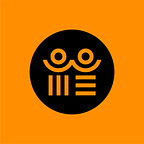Walking so they don’t have to!
As the partial lockdown continues in Uganda because of the COVID19 pandemic, the future remains unpredictable for everyone. Even though the government has registered great success in reducing the spread of the virus, the checks in place have shaped yet another layer of hardship.
About 15 million Ugandan students can’t access education as the countrywide school closure continues. While the Ministry of Education has created channels to distribute study materials to help students continue learning during the lockdown, a significant number of learners in hard-to-reach areas don’t have access to these resources — creating a deeper loophole in the existing education inequalities.
When the lockdown started in Uganda, together with our partners DHL — we distributed over 2,000 books to help underprivileged students in UPE schools continue learning amidst the pandemic.
Our fellow Racheal Byaruhanga from the second cohort (2020–2021) has made great strides in ensuring that her students keep learning during the lock-down.
She walks an average of 12KM every day to facilitate her students to read and write. Most children in her community can’t access available learning solutions provided by the education ministry.
Racheal, 25, is currently posted at Butuntumula Umea Primary School in Luweero District where she is serving for two years as a full-time teacher to transform the educational abilities of the less-privileged children.
“I wake up every day and realize that my learners are seated home; this makes my heart bleed.”
While innovative solutions like remote learning and tailor-made education material on TV are top of mind from the government authorities; less privileged students who don’t have access to the internet and electricity remain at a disadvantage.
“I wake up every morning and walk long distances to make sure my learners are in good condition, healthy and learning during this lockdown.
“Before the lockdown, my learners would walk through scary bushes, valleys and swamps to also attain education just like others. I realized how difficult this was when I started going to the homes of these students to help them learn. It’s not easy at all.”
While the UPE program is intended to benefit children in low-income households to achieve free education, poverty remains a top barrier to learning.
A study carried out between 2017–2018 by the Ministry of Education reveals that 240,000 pupils who enrolled in primary one under the Universal Primary Education (UPE) dropped out before reaching Primary four.
Racheal is also using her platform to transform the community through grooming young girls: “When interacting with my learners, especially my little girls, I sensitize them on how best they can protect themselves. I also talk to their parents and create awareness about child protection”.
“Whenever I see how many lives I have impacted and how many people are getting better because of me, I get a big smile on my face.”
Racheal has so far managed to facilitate over 100 students since the lockdown. This is a reflection that trained teachers will help us achieve equity education in Uganda.
